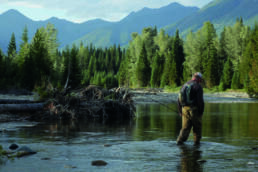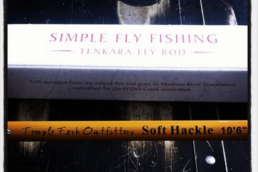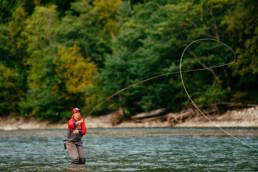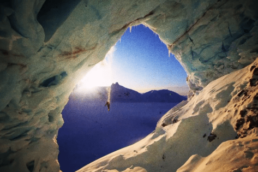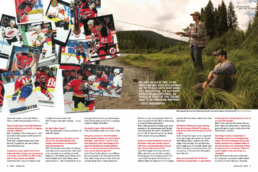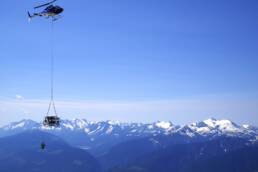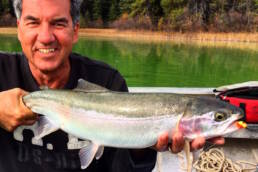After a couple of bad breaks, an upstart East Kootenay angler learns the river’s ropes and finds revival in the currents. All thanks to the wise-cracking ways of a sage fly fisher who showed him the know in the flow. By Jeff Pew
When his wife asked him if he’d choose her or fly-fishing, Batesy said, “I’d choose you, but you wouldn’t like me very much.” Batesy said fly-fishing saved his life. He’s the type of guy who wakes up, opens one eye cautiously and is surprised he made it this far. The flow of the East Kootenay rivers quiet his mind. He disappears for days, loses himself by wandering through a river’s twisting turns. He studies the hatches, snatches bugs out of the warm air, and ties a fly that mimics the faint green hue of the caddis in his palm. When he catches a cutthroat, he murmurs to it softly before releasing it back to the river.
And if the river saved Batesy’s life, in many ways, he saved mine. After I broke my neck and had two months to recover, he said, “It’s the fall. You better learn how to fly-fish. What else ya gonna do? Lie on the couch, watch TV and dream about how happy you are ya can walk?” In an Aspen neck brace, I followed Batesy to my backyard where he showed me the basics of casting before the first snowfall. Six months later, I had a cerebral aneurysm and four months off work. Batesy took me to the river.
He loaned me an old vest and a rod he didn’t use. We started on wide, forgiving creeks, where I wouldn’t snag a hook or fall into a logjam. He’d crouch on a rock behind me and patiently teach about the rhythm of casting. He told me to close my eyes, feel the curve of the line and its gradual unfurling. He told me to wait and breathe. As I untangled my line, he made cryptic allusions to wave theory, mass and the transfer of impulse. Sometimes, he’d sarcastically say, “Maybe you should snap it harder, like your golf swing.”
Every time we reached a new hole, he wanted me to fish it first.
Often, we wandered without fishing. He’d point out the subtle features of a river: where the oxygen is and where the fish like to rest while waiting to feed. He showed me how to sneak up on a fish, stepping gently through river rocks, or how to cast while crouching so the fish wouldn’t see our shadows. He loaned me the classics like the Curtis Creek Manifesto or The Habit of Rivers and would quiz me when I did something wrong. He’d say, “Why are ya standing on the fish?”
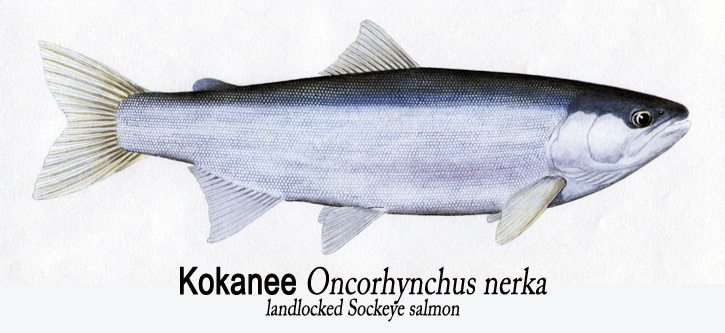 On dusty forest roads, we’d lift deadfalls and sneak through abandoned roads, the young alders scratching paint off our trucks. He showed me how to slow down and hide our tire tracks when we turned onto a new trail. On long drives, I learned the etymology of aquatic insects, that an adult caddis skates across the current or that the frenzied dance of a mayfly hatch lasts only a day before they die. Batesy showed me that if you assemble your rod with earwax, it’ll come apart easier at the end of the day.
On dusty forest roads, we’d lift deadfalls and sneak through abandoned roads, the young alders scratching paint off our trucks. He showed me how to slow down and hide our tire tracks when we turned onto a new trail. On long drives, I learned the etymology of aquatic insects, that an adult caddis skates across the current or that the frenzied dance of a mayfly hatch lasts only a day before they die. Batesy showed me that if you assemble your rod with earwax, it’ll come apart easier at the end of the day.
Years later, after wandering the 60 kilometres of river many times over, when I thought I knew what I was doing, I left the shore and waded into the water to cast a line. When Batesy kept walking, I asked him where he was going. “Where the fish are,” he muttered. I laughed, reeled in my line and followed him to where the fish were.
Healing comes in many forms, and Batesy knew that for some people, like us, it comes in the paradox of the river, the hurried pace of spring runoff, or the gentle flow of fall. The extreme ends of life and death. The knowing of not knowing. There’s something transformative about the moment you emerge from the bush and take your first step onto the river.
When the Kokanee return to spawn and die in the same spot they were born, they participate in what appears to be a magical ritual of mating and birth: they leap out of the water, their bodies burning orange with life, and dance across the surface on their tails. I said to Batesy how beautiful it was. “It’s ’cause they’re going nuts,” he chuckled. “Their brains are rotting.”
Last summer, in one of our favourite stretches, I said, “If I die before you, will you spread my ashes right here?” Batesy laughed and said, “Yep. But do me a favour. If I die first, have a beer in the Sully and flush my ashes down the frickin’ toilet. That way you guys can have a drink and I’ll get to the river sooner or later.”
Jeff Pew
Jeff Pew is co-founder of Poetry on the Rocks, an annual celebration of spoken word in the East Kootenays. He works as a creative writing teacher and counsellor to teens. He lives in Kimberley, BC.
Related Stories
How To Become a Fly-Fishing Influencer: April Vokey
Empowerment and steelhead on the Bulkley River. Fly-fishing guide April Vokey casts away. By Amanda Follett Hosgood.…
Sweetgrass Lets Freak Flag Fly With New Kootenay Inspired Film
They are one of the most talented production houses in winter sports today. A fusion of young American filmakers who…
Because it’s Playoff Season
Two of the Kootenays most famous athletes might not be in the Stanley Cup Playoffs this year, but they've certainly…
Don Freschi – The King Of Columbia River Fishing
TV personality and angler Don Freschi was born and raised in Trail, British Columbia, and has fished waterways around…


